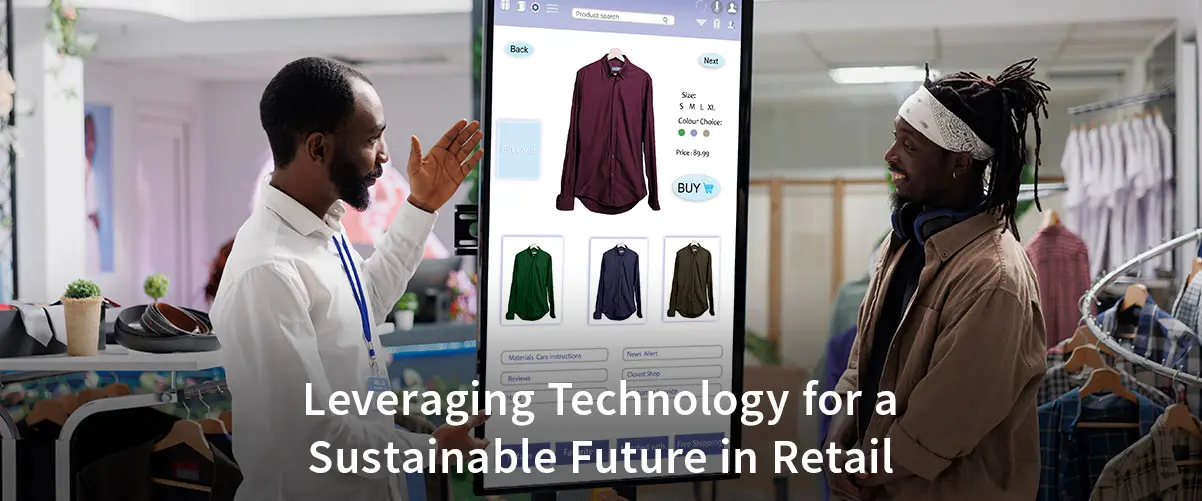
As retailers navigate the ever-evolving landscape of consumer behaviors, technological advancements, and economic shifts, 2024 has offered invaluable lessons that can shape future strategies. The retail sector has witnessed a significant transformation, driven by digital innovation and changing customer expectations. In this blog, we will explore key takeaways from 2024 that retailers can implement to enhance their operations, improve customer experiences, and stay competitive.
The Rise of Omni-Channel Retailing
One of the most significant trends of 2024 has been the accelerated adoption of omnichannel retailing. Consumers now expect a seamless shopping experience across all touchpoints—be it in-store, online, or via mobile applications. Retailers have learned that integrating various sales channels is not just a convenience; it’s a necessity.
Actionable Insights:
- Invest in Unified POS Solutions: A unified point-of-sale (POS) system allows retailers to manage sales, inventory, and customer data from a single platform. This integration facilitates real-time updates and insights, enabling better decision-making.
- Enhance Online Presence: Retailers should invest in e-Commerce platforms and social media marketing to attract customers who prefer online shopping.
Leveraging Data Analytics
The ability to harness data analytics has proven crucial for retailers in 2024. With the vast amount of data available, retailers can gain insights into customer preferences, inventory management, and sales trends.
Actionable Insights:
- Implement Cloud-Based Inventory Management: By utilising cloud-based inventory management systems, retailers can track stock levels in real-time, reduce excess inventory, and improve overall efficiency.
- Utilise Customer Insights: Analysing customer behavior through data can inform personalised marketing strategies, product offerings, and customer service enhancements.
The Importance of Sustainability
Sustainability has emerged as a key concern for consumers in 2024. Retailers have learned that adopting sustainable practices is not only beneficial for the environment but also essential for building brand loyalty.
Actionable Insights:
- Source Sustainable Products: Retailers should prioritise sourcing from eco-friendly suppliers and promoting sustainable products. Transparency in sourcing can enhance brand reputation.
- Implement Sustainable Practices: Initiatives such as reducing packaging waste, optimising supply chains, and adopting energy-efficient technologies can resonate with environmentally conscious consumers.
Enhancing Customer Experience
In an age where consumers have numerous options, providing an exceptional customer experience is more critical than ever. Retailers have learned that personalised and engaging experiences can significantly impact customer loyalty.
Actionable Insights:
- Adopt Mobile POS Technology: Mobile POS systems empower staff to assist customers anywhere in the store, reducing wait times and improving service.
- Personalise Interactions: Utilising customer data to tailor promotions, recommendations, and communications can create a more personalised shopping experience.
Embracing Technological Innovation
2024 has highlighted the importance of keeping up with technological advancements. Retailers who embrace new technologies can streamline operations and enhance customer engagement.
Actionable Insights:
- Invest in Cloud POS Software: Cloud POS solutions provide flexibility and scalability with features such as remote access, automatic updates, and real-time reporting.
- Explore Emerging Technologies: Retailers should consider implementing AI, augmented reality (AR), and virtual reality (VR) to create innovative shopping experiences.
Strengthening Supply Chain Resilience
The disruptions caused by global events have taught retailers the importance of supply chain resilience. Those who adapted quickly were able to maintain operations and meet customer demands.
Actionable Insights:
- Diversify Supply Sources: Relying on a single supplier can be risky. Retailers should diversify their supply chains to mitigate risks associated with disruptions.
- Invest in Technology for Supply Chain Management: Utilising advanced technologies such as predictive analytics and blockchain can enhance transparency and efficiency in supply chain operations.
Fostering Community Engagement
Retailers have learned that building a strong community presence can significantly impact brand loyalty. Engaging with local communities fosters trust and enhances customer relationships.
Actionable Insights:
- Host Community Events: Organising events or workshops can create a sense of community and attract new customers.
- Collaborate with Local Businesses: Partnering with local businesses for promotions or events can enhance brand visibility and foster community support.
Conclusion
The lessons learned in 2024 have provided retailers with a roadmap for future success. By embracing omnichannel retailing, leveraging data analytics, prioritising sustainability, enhancing customer experience, adopting technological innovations, strengthening supply chains, and fostering community engagement, retailers can navigate the challenges ahead and thrive in an increasingly competitive market.


